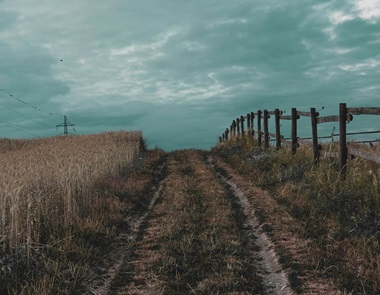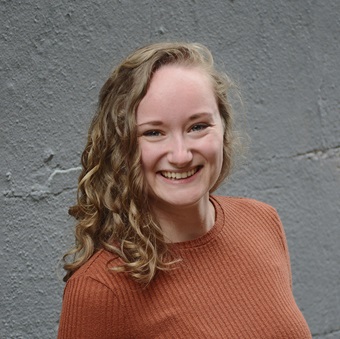
Photo by Folco Masi
Commitment does limit choices, but those limits are good.
When I was a teenager and in my early twenties, I was terrified of settling. To me, settling meant opting for something less than the best.
It meant lowering my standards, making peace with average. Living a mediocre life. It meant choosing before all the cards were on the table and missing out on what could have come if only I’d waited a bit longer.
I wanted to make sure I knew my options before deciding so I could reassure myself I hadn’t ‘settled’ for a second-rate life. Otherwise, how could I possibly know whether I was making the best choice? I was most afraid of settling when it came to marriage, but this thinking can apply to any kind of relational commitment.
In a culture that celebrates removing limits to choice, the idea of restricting that expansive horizon to a single person and then sticking with them doesn’t sound all that romantic or compelling. Why not see who else is out there? Why limit yourself? Why commit, since that means putting up with the crappy parts of someone as well as the good parts?
I’ve come to realize that my fear of settling was actually a fear of missing out. It’s very alluring to picture an endless stream of untapped potential – ideal, imagined partners with whom my life might look different. Those unknown, untravelled roads will always be more exciting than the real, solid human beside me.
Faced with a string of imagined possibilities, someone better always awaits. That mindset makes it difficult to choose a particular person, with his or her gifts and limitations. It can also make such a choice feel like ‘settling.’
But we cannot develop deep relationships or belong within communities if we aren’t willing to settle. If we always move on to someone new, the connections we form will remain thin and fragile. Connectedness and trust are strengthened by putting in the time – committing to the long haul and navigating life together amid the highs and lows.
Long-term commitments to particular partners, friends and communities are a form of limitation. But the relationships born from those commitments make up for the constraints. We all need people who know us at our best and who can be patient with us at our worst. We all need people to be there when we’re sick, lonely or looking for advice. We all need people who can make us food, give us hugs or listen to our grand and terrible ideas.
While any long-term relationship will involve hurt at one point or another, when all goes as it’s meant to that hurt is mitigated through mutual devotion to each other’s wellbeing. But this is not to say commitment is always wise, or safe. No one should put up with abuse in the name of commitment (or for any other reason).
We can also passively settle for the first relationships that come along simply because they were first. The decisions are made easy – with no effort or intentionality required. Or, we can settle for something because the goal (say, getting married) is more important than discerning whether the other person is a good fit. When we are focused on achieving our goal instead of making a wise choice, we can end up committing without careful consideration.
But these risks don’t mean that settling itself is bad – just that it calls for wisdom in who we commit to and when – and that committing to relationships comes with wounds as well as gifts.
My own version of settling down with someone is comically cliché – the opposite of my idea that to avoid settling I needed to find a convincing array of potential candidates and evaluate the best choice. Instead, I fell in love with a man I’d known since I was a kid. We grew up within a 10 minute drive from each other’s houses. I still marvel at the layers of trust and history that texture our relationship of seven years, like sediment rock building over time.
In his poem ‘On Love‘ Lebanese-American poet Kahlil Gibran writes:
If in your fear you would seek only
love’s peace and love’s pleasure,
Then it is better for you that you cover
your nakedness and pass out of love’s
threshing-floor,
Into the seasonless world where you
shall laugh, but not all of your laughter,
and weep, but not all of your tears.
Those words touch the tender core of what I’m learning. That love indeed hurts. It demands all of our laughter and all of our tears – and that depth of emotion is frightening and vulnerable. The real people we try to love will empty us of our idealism and pride and instead fill us in a way that escapes our fumbling efforts to describe it.

Ilana Reimer
Settling doesn’t mean agreeing to the mediocre. It means saying yes to the particular people and to the particular places we find ourselves in. It means settling with others, and together exploring new opportunities. It means accepting others in their fullness – holding each other accountable for the bad while inspiring each other to reach toward the good.
Ilana Reimer has written for a number of publications, including Eks
She has written this comment as a member of The Bell: Diverse Christian Voices in Vancouver.
